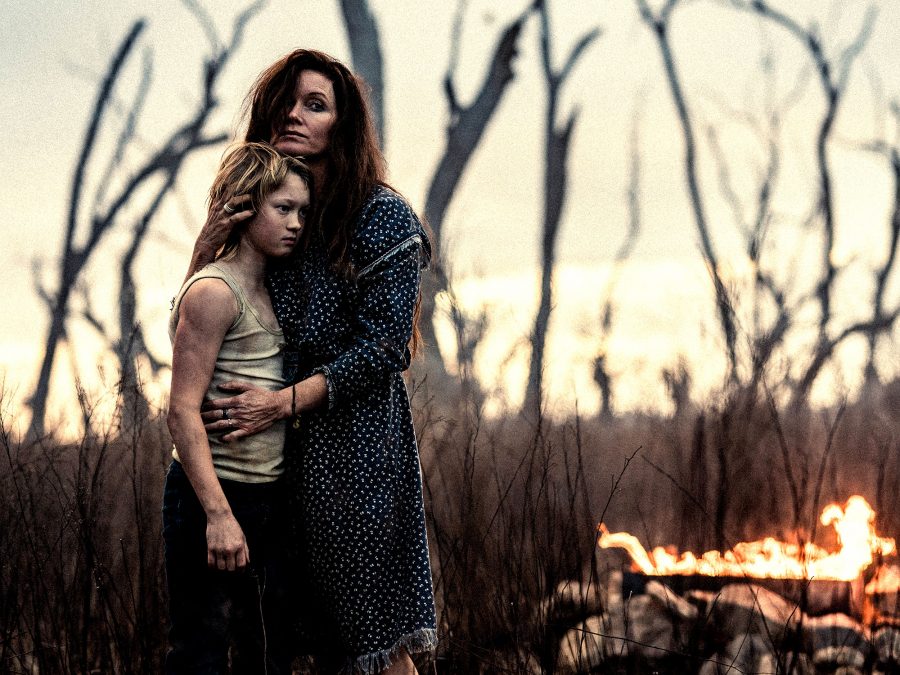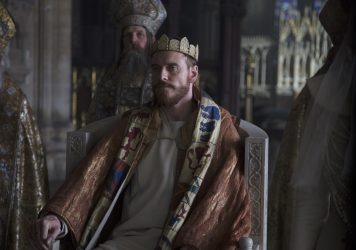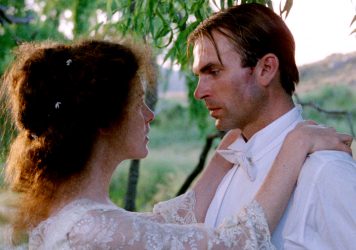Justin Kurzel’s bold reimagining of the life and crimes of Ned Kelly is a gross misfire.
There’s a moment early on in True History of the Kelly Gang where Russell Crowe’s gruff bushranger, Harry Power, manages to lasso Charlie Hunnam’s Sergeant O’Neil by his testicles, threatening to yank them off unless the compromised copper plays along with his sadistic game. It’s a situation you may well find yourself empathising with, as this is a film which is extremely painful to sit through. All you can do is keep taking deep breaths and wait for the aching sensation to pass.
Having previously butchered Macbeth, director Justin Kurzel, onetime heir apparent of the austere Antipodean arthouse, offers a bold reimagining of the life and crimes of another fabled madman, Ned Kelly. The film opens with the alarm bell-sounding statement “nothing you are about to see is true,” which is intended to subvert the expectation for objective historical truth implied by its title, but also inadvertently undermines its narrative authority.
There’s always been the temptation to print the legend where Kelly’s story is concerned. As Australia’s most notorious and cherished folk hero, tales of his bloody clashes with the British establishment in the late 19th century are deeply ingrained in the national psyche. It’s admirable of Kurzel, then, to tackle this subject from a fresh, revisionist angle, with Peter Carey’s 2001 novel providing the basis for Shaun Grant’s screenplay.

The problem is that, in addition to being largely fictionalised and thereby effectively redundant as a portrait of a real-life figure, the whole thing has the look and feel of a misjudged fashion campaign which has been conceived around the theme ‘colonial chic’.
Half of the male cast look as though they’ve just strolled in off the set of a Hollister commercial: chests bared; muscles straining; hair elegantly dishevelled. Mick Jagger famously played Ned Kelly in a 1970 biopic by Tony Richardson, and in True History everyone appears to be on a mission to out-Jagger one another. In particular, George MacKay and Nicholas Hoult (playing Kelly and the callous Constable Fitzpatrick respectively) are unbearable. And they’re not alone. This is a film which, in a remarkably similar vein to Todd Phillips’ Joker, mistakes flamboyant posturing and raw physicality for authentic performance.
The women, meanwhile, are allowed to operate in two modes: screeching and submissive or silent and submissive. Female characters – most notably Essie Davis as ma Kelly and Thomasin McKenzie as Ned’s lover – are shown being routinely abused and oppressed by male characters, and not a lot else. Which although contextually accurate is nonetheless objectionable in light of the men in question being afforded so much screen time to do little but prance about and scowl menacingly.
What a nastily violent film this is, too. The aforementioned bollock-snaring incident notwithstanding, Kurzel displays a worrying preoccupation with masochistic bodily harm. Like the eponymous hanged man, I just couldn’t get no satisfaction.
Published 26 Feb 2020
Kurzel has a point to prove after the diabolical Assassin’s Creed.
A rare thrill to see a film which completely recalibrates your perspective on what good (and bad) cinema looks like.
Justice for Ned Kelly.

A fabled Australian outlaw has been portrayed by everyone from Mick Jagger to Heath Ledger – with wildly varying results.

By Anton Bitel
A vital reimagining of ʻThe Scottish Play’ with stellar turns from Michael Fassbender and Marion Cotillard.

In 1979, the first Australian film directed by a woman since the silent era signalled a new dawn for female authorship.